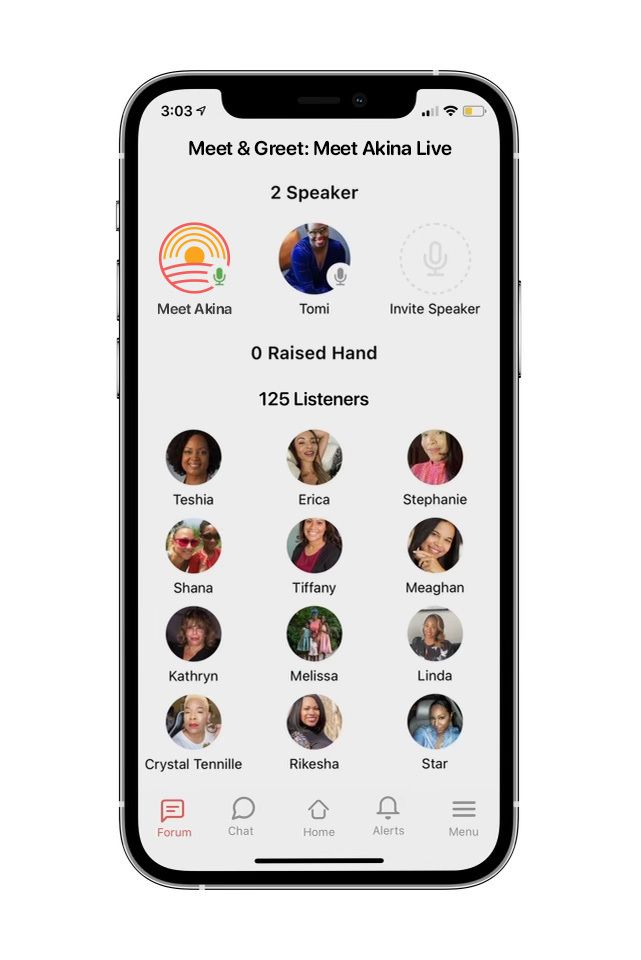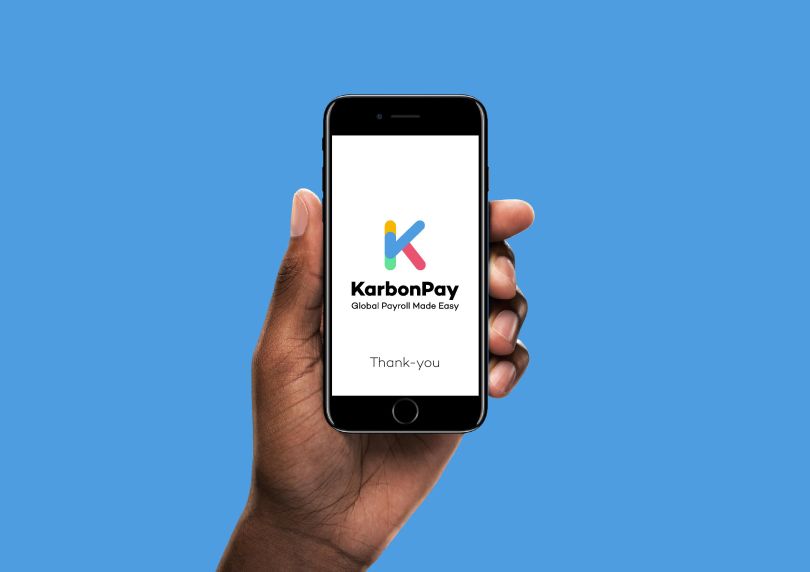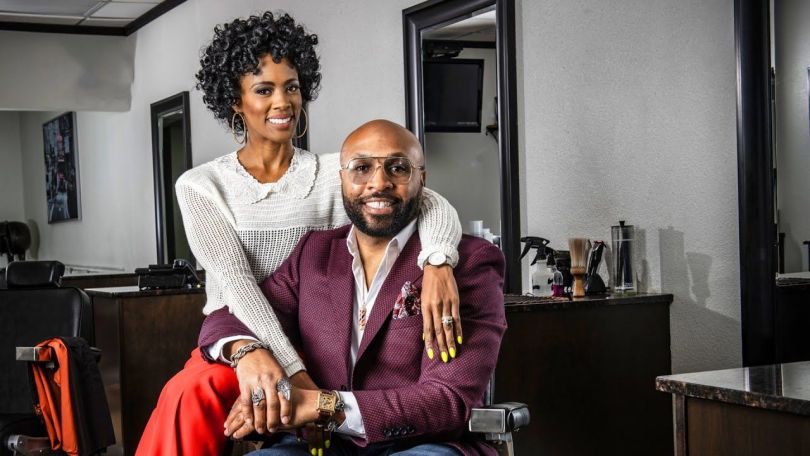Sure, the latest initiatives from the Teslas, Apples and Googles of the industry tend to dominate the tech news space — and with good reason. Still, the big guns aren’t the only ones bringing innovation to the sector.
In an effort to highlight up-and-coming startups, Built In launched The Future 5 across 11 major U.S. tech hubs. Each quarter, we will feature five tech startups, nonprofits or entrepreneurs in each of these hubs who just might be working on the next big thing. Read our round-up of rising startups from last year here.
* * *
Last year, several startups relocated to the DFW metro and others raised millions. Notable innovation also took place across the metro. From SaaS platforms to e-commerce and social media startups, DFW is home to various industries and over the years has transformed into a blossoming tech hub.
The local tech scene made many headlines last year, however, some of the smaller startups went unnoticed. In an attempt to highlight the most exciting startups, Built In has compiled a number of startups doing exciting work. These startups showcase the diverseness of the DFW tech scene and will surely make waves in 2022.
BUILT IN’S FUTURE 5 UP-AND-COMING Dallas-Fort Worth STARTUPS, Q1 2022
- aerMist (E-Commerce)
- Akina (Social Media)
- KarbonPay (Fintech / SaaS)
- Language Learning Market (E-Commerce)
- ShearShare (Beauty)

aerMist (E-Commerce)
After years of dealing with the Texas heat and finding no practical cooling solutions, husband and wife duo Boris and Jelena Medic launched aerMist to keep cool during the summer months.
AerMist offers high-pressure misting systems that spray water at 1,000 PSI creating a fine mist that evaporates and cools the area instantly. According to Boris, misting can help cool down a space by up to 20 degrees Fahrenheit. The systems are ideal for outdoor shaded areas and outdoor dining spaces as they create little to no noise. What makes aerMist different from other cooling systems is its mobile app and D2C business model.
“AerMist has been well-received by residential and commercial customers who have purchased the high-pressure cooling systems since the launch. They see value in the aerMist system, which runs quietly, can be tailored to their space and is easily controlled by the user-friendly proprietary app.”
Through the app designed by Boris and Jelena, users get total control of the misting system and can do anything from scheduling when the system is operational to selecting the amount of water sprayed. The app also allows users to connect up to four aerMist systems.
The local startup has already sold misting systems to restaurants and plans to continue selling directly to consumers. The company’s D2C model keeps costs down and it also helps build rapport with end-users, according to Boris.
“AerMist has been well-received by residential and commercial customers who have purchased the high-pressure cooling systems since the launch,” Boris told Built In. “They see value in the aerMist system, which runs quietly, can be tailored to their space and is easily controlled by the user-friendly proprietary app.”
Part of aerMist’s initial success with customers has been in part due to the Covid-19 pandemic which forced families to spend more time at home and in turn led to an uptick in home renovations and improvements.

Akina (Social Media)
When Leigh Butler moved to Frisco she struggled to find parenting resources while going through her own pregnancy. She knew of different mommy groups and other community organizations but none were geared specifically for Black women. Her solution was to bring together all groups — influencers, bloggers, experts and moms — onto one platform that focuses on providing aid and resources for Black women. So, she founded Akina, an app she describes as Facebook for Black moms.
In Swahili, Akina means a strong family bond and Butler applies the same philosophy to her social platform.
“Building bonds with our children while also building bonds within our community is the cornerstone to our company. There are a myriad of nonprofits and mom groups that are supporting Black women and mothers that have been doing the work for years. I believed the best way to support these organizations was to create a destination and hub of information and resources that also allows members of our platform to learn from one another. The best way I could see to accomplish this was through an app,” Butler told Built In. “I had a deep desire to connect with other Black moms in a safe and nurturing environment and learn from the experiences of my sisters.”
On the app, users can post and form groups — similar to Facebook — in addition to host and attend digital events on topics ranging from pregnancy to grandmotherhood and everything in between. The app also focuses on connecting other users to a bevy of community and federal resources.
“Building bonds with our children while also building bonds within our community is the cornerstone to our company.”
The app is currently in beta with new features coming soon. While in beta, Akina has been able to amass a 20,000 person waitlist for the app.
“Having a significant waitlist like that is a huge accomplishment at this early stage of the business and definitely proves that the concept is one that is needed and wanted by our target audience. The goal now for our team is execution on migrating everyone over to the app and providing a great experience for our members,” Butler said.
Akina plans to raise outside funding and has been meeting with angel investors who are “mission-aligned and believe in what we are trying to build for our community and impact millions of lives,” Butler said.

KarbonPay (Fintech / SaaS)
Brad Price is not new to the startup world. He’s worked at several startups and even launched his own in 2016 before launching KarbonPay in 2019.
KarbonPay is a cloud-based SaaS tool aimed at helping corporations facilitate payroll with employees based in other countries. Outsourcing work to other countries is nothing new and is often done as a cost-saving method or done to access a talented labor force. Hiring foreign-based employees is a laborious process in and of itself and setting payroll for those employees is just as hard. Employers have to comply with foreign tax laws and currency conversions too. Dallas-based KarbonPay’s easy-to-use platform streamlines this process.
Through the software, companies are able to manage payroll for all foreign employees and can automatically calculate deductions based on the country each employee is located in.
“The issues surround a legacy approach to calculating accurate payroll data, relying on in-country partners rather than technology,” Rob Kleifgen, CFO at KarbonPay, told Built In. “We started KarbonPay to instantly and automatically process accurate, compliant cross-border payroll in a single system with multiple languages, currencies and game-changing reporting capabilities.”
Over the years, the startup has also added new products such as Xmartclock that help ensure workers are clocking in at the job site. KarbonPay also began experimenting with features that would allow workers to be paid in cryptocurrencies and other direct payment methods.
Since launching, KarbonPay has been able to partner with companies like Gusto, Square and ADP to process global payroll. The startup also launched in Mexico and South America and was awarded first place in the fintech category at the Go Global Awards hosted by the International Trade Council last year.
“We started KarbonPay to instantly and automatically process accurate, compliant cross-border payroll in a single system with multiple languages, currencies and game-changing reporting capabilities.”
KarbonPay has also had success in raising outside funds. In 2020 it raised $165,000 from friends and family and has raised a total of $1.1 million in seed funding, according to Crunchbase.
“We are now putting together some very interesting projects which will require additional funding in the very near future,” Kleifgen told Built In about KarbonPay’s next steps.

Language Learning Market (E-Commerce)
While living in the Middle East, Allison Monroe came up with the idea to sell language educational materials after seeing companies and independent vendors manufacturing quality Arabic language educational materials. At the time, the concept of e-commerce was nascent and Monroe noticed that vendors were struggling to sell their products intended for English speakers. In 2008, she launched Sryaj, an Arabic wholesale educational company that helped sell products from vendors in the Middle East. Eventually, Sryaj started selling these products digitally.
At the same time, Monroe was growing her social presence and launched a YouTube channel where she uploaded Arabic cartoons and grammar lessons.
“My oldest was born. It was very important to me to raise her to be a global citizen and for her to learn ... to be multilingual. And because I had spent so much time living and working in the Middle East I wanted to teach her Arabic,” Monroe told Built In.
Monroe closed Syraj in 2018 but her passion for language learning continued. In 2021, she launched Language Learning Market (LLM) — an e-commerce platform to sell everything from toys to lesson plans to computer keyboards in different languages. Monroe describes the site as Etsy but for educational products and tools. Monroe and her team even put companies through a rigorous onboarding process before their products are sold on LLM’s website to ensure accuracy.
McKinney-based LLM has been operating off grants and private investments since its launch. In July of 2021 the company also secured $10,000 for coming in third place in the Impact Ventures accelerator program. The startup hopes to raise a pre-seed round in the near future.
“We are confident about [LLM] because Alison has already done this. Alison has the blueprint. She has made this work and she made this company work for Arabic at a time when she didn’t have the resources, the technology, the network,” Hiba Hamati, co-founder and VP of strategy and marketing at LLM, told Built In.

ShearShare (Beauty)
The hair care industry, like many sectors in the U.S., experienced labor issues and staffing shortages amid the pandemic. The hair industry is also extremely volatile due to barbers and salon employees often working as independent contractors. That’s where McKinney-based ShearShare comes in. ShearShare is a B2B mobile platform that helps salons and barbershops find licensed beauty professionals.
The startup launched in 2015 but in 2021 the app pivoted to offer labor solutions for business owners in need of employees. The app works by attracting owners of salons, barbershops or other beauty professionals who have open space in their shops. Owners are able to list space on the app and licensed professionals can apply to work in the space and pay rent to the owner. According to the company, ShearShare is perfect for hairstylists, nail techs, massage therapists, microblade artists and many other beauty professionals.
Renting space via the app starts as low as $20 a day and includes liability issuance coverage. According to the company’s website, ShearShare is available in over 850 cities across the country and has raised a $2.3 million in a seed round in 2020. The startup is also hiring for several remote positions, including a UX designer, content manager, interns and engineers.




